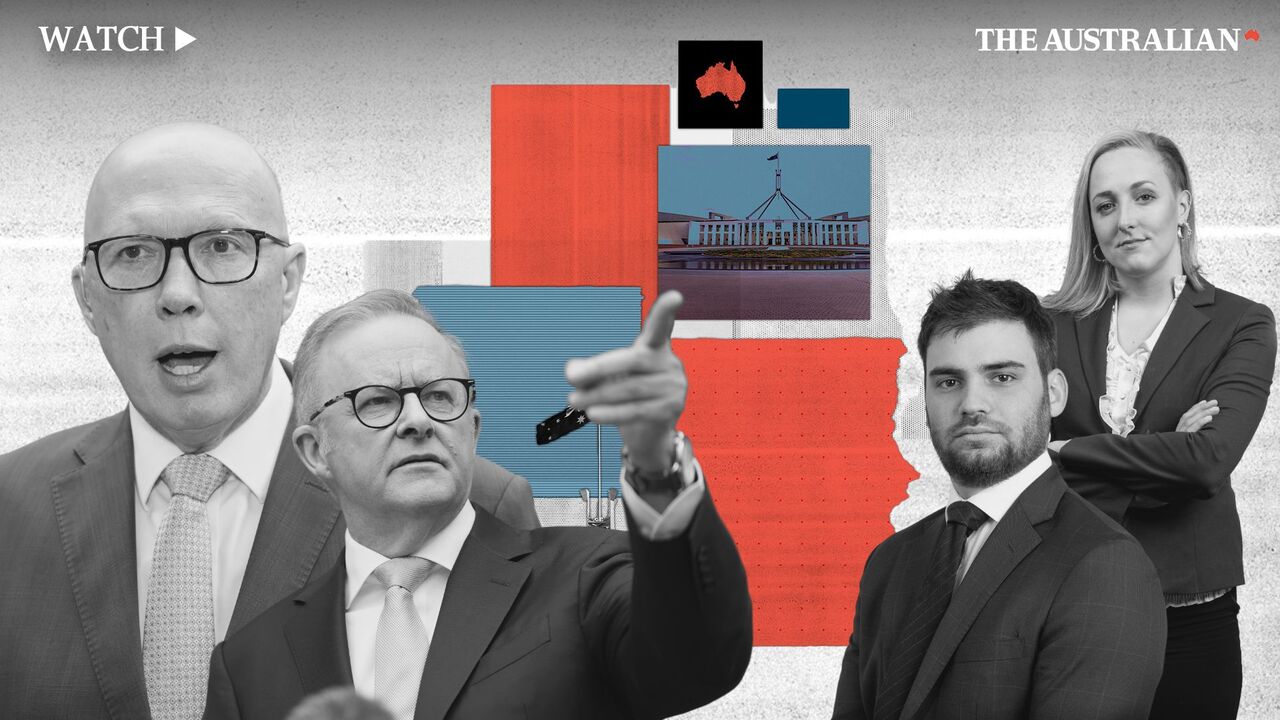Election 2025: Mining blackouts campaign hits key seats including Chris Bowen’s electorate
Australian miners have launched a ‘Mining Keeps the Lights On’ campaign blitz including in Chris Bowen’s Sydney electorate, taking over billboards on highways and at NRL and AFL matches.

Australian miners have launched a “Mining Keeps the Lights On” election campaign blitz in key seats including Chris Bowen’s electorate of McMahon, taking over billboards along the M4 highway in western Sydney and targeting major sporting events.
The Australian can reveal the Minerals Council of Australia has entered the election fray amid industry fears that the Greens and teal independents will ramp up pressure on a Labor minority government to undermine the resources industry, which holds up the nation’s economy.
As Mr Bowen comes under pressure in his notionally safe western Sydney seat of McMahon, and the Coalition attacks Anthony Albanese over breaking his pledge to reduce power bills by $275, the MCA’s apolitical campaign is warning voters that the country’s energy grid is underpinned by the mining sector.
The ads, including some tailored for inner-city electorates around the importance of mining for renewable energy, are being displayed on major highways and roads, shopping centres and at sporting events. Digital banners have been running at NRL and AFL matches across the country in recent weeks.
The MCA election campaign is targeting key seats across NSW, Victoria, Queensland, South Australia and Western Australia. In NSW, ads are running in McMahon, Bennelong, Cowper, Whitlam, Hunter, Werriwa, Lindsay, Paterson and Gilmore. Victorian seats targeted include Kooyong, Dunkley, Aston, Menzies, Monash, Corangamite and Ballarat.
The mining industry joins other sectors in ramping up pressure on the Prime Minister and Opposition Leader Peter Dutton ahead of the May 3 election, with the Council of Small Business Organisations Australia and Master Builders Australia running separate campaigns lobbying for key policy measures championing small-business owners and builders.
MCA chief executive Tania Constable, who represents 120 member companies including mining giants BHP, Rio Tinto, Whitehaven, Glencore and Lynas Rare Earths, told The Australian that voters are “rightly concerned about the cost and reliability of energy”.

“The reality is, mining is essential to keeping the lights on. It is irrefutable that coal and minerals are critical inputs into the production of energy in Australia,” Ms Constable said.
“Without mining, energy in Australia would be more expensive and far less secure.
Coal still generates well over half the electricity on the east coast, despite the fact we haven’t built a new coal-fired power station since 2007.
“But importantly, there is also no renewable energy without mining, given the importance of critical minerals in the production of solar panels, wind turbines and batteries.”
The MCA’s nationwide digital campaign is being framed around the apolitical theme of “Mining Keeps the Lights On”, pressing home to voters that mining is essential to powering Australia into the future. With energy prices and reliability a key theme of the election, as Mr Albanese and Mr Dutton sell their competing power plans anchored by renewables and nuclear, the MCA is seeking to remind Australians that neither plan will succeed without a strong mining industry.
The Australian can reveal the MCA campaign is targeting inner-city electorates with tailored messages about renewable energy focused on the fact that mining provides the essential materials required to manufacture solar panels and wind turbines.
The ads, which are rolling out in battleground mining states, have already been displayed at prominent AFL and NRL matches in Brisbane and Sydney.
As revealed by The Australian on Monday, COSBOA is rolling out a cashed-up advertising campaign pushing Labor and the Coalition to lower the corporate tax from 25 per cent to 20 per cent for firms with annual turnovers of less than $20m. Since the 2022 election, almost 30,000 companies have plunged into insolvency, with the vast majority of them being small businesses.




To join the conversation, please log in. Don't have an account? Register
Join the conversation, you are commenting as Logout